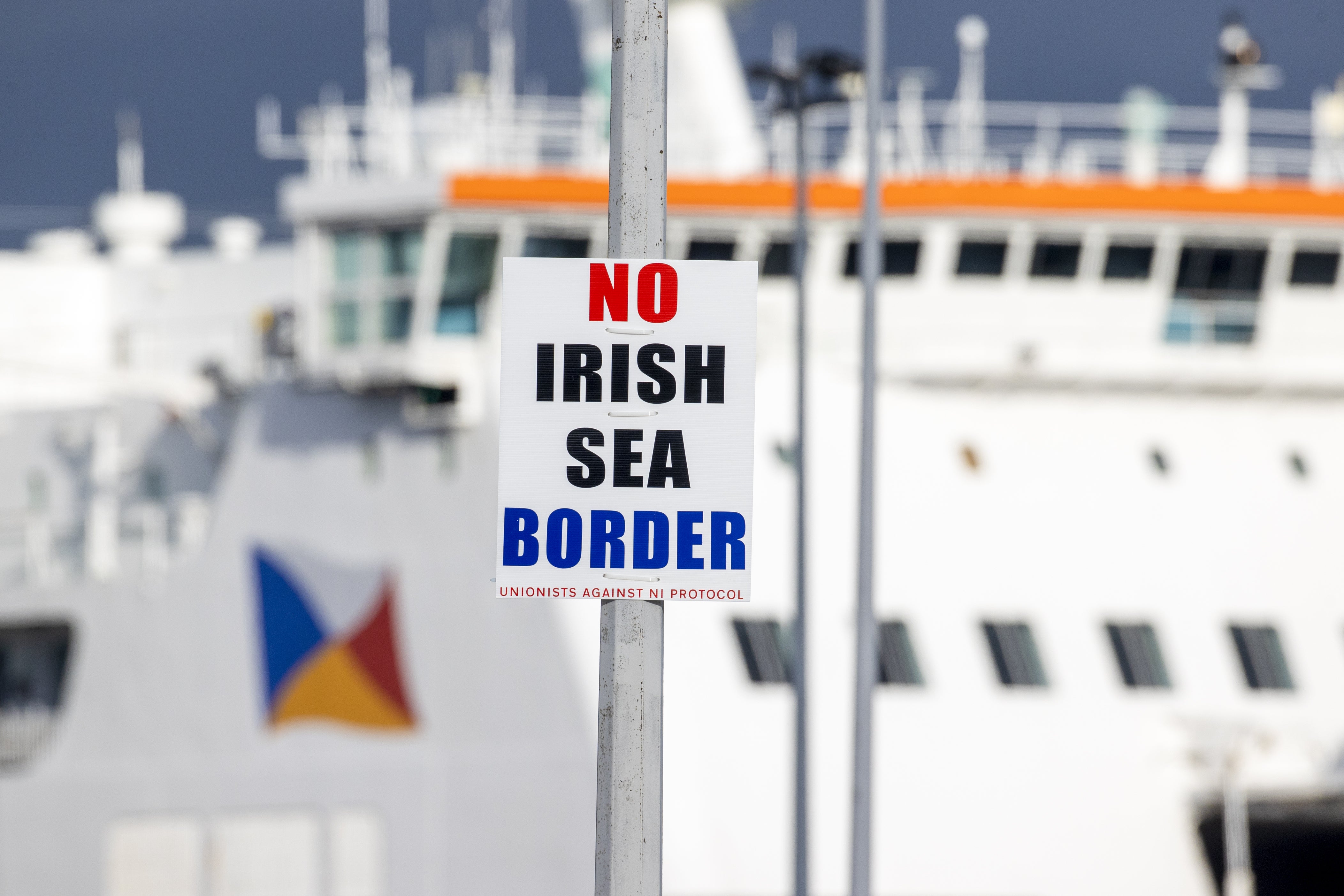Boris Johnson sees ‘landing zone’ in Northern Ireland row with EU, says No 10
London seeks to calm tensions as PM visits Belfast for talks with parties

Downing Street today sought to take some of the heat out of the UK’s stand-off with Brussels over Brexit, insisting that there is a “sensible landing zone” to resolve their differences without tearing up the Northern Ireland protocol.
As Boris Johnson headed for Belfast for talks with Northern Irish parties aimed at restoring the Stormont executive and assembly, his official spokesperson insisted that London wants to find a solution in a “calm manner”.
Foreign secretary Liz Truss will tomorrow set out plans for legislation which would allow the UK unilaterally to override the protocol, agreed by Mr Johnson in 2019 as a means of keeping the Irish border open after Brexit.
Her plans are believed to include light-touch “green channel” checks for goods from mainland Britain destined for Northern Ireland, as well as the removal of any European Court of Justice role in overseeing the border and new powers for Westminster to vary VAT rates in Northern Ireland.
Ms Truss’s blueprint would almost inevitably be seen by Brussels as a breach of the international treaty signed by Mr Johnson less than three years ago, which would give the EU the right to retaliate with restrictions on UK exports.
But any trade war would not come to a head for a year or more, with negotiations likely to continue during the passage of the foreign secretary’s bill through parliament.
Irish foreign minister Simon Coveney today said that the zero-tariff, zero-quota arrangements in EU/UK the Trade and Cooperation Agreement (TCA), would be jeopardised if Mr Johnson ploughed ahead with unilateral action.
Calling for dialogue, Mr Coveney told reporters in Brussels that the alternative was “unilateral action which means tension, rancour, stand-offs, legal challenges – and of course calls into question the functioning of the TCA itself”.
But in an article for the Belfast Telegraph, Mr Johnson denied seeking confrontation with Brussels, but insisted the EU must give ground.
The PM suggested that the protocol had delivered unintended consequences and has not been “adapted to reflect” the reality that it has disrupted trade.
He said there was “without question a sensible landing spot in which everyone’s interests are protected”.
But he warned: “I hope the EU’s position changes. If it does not, there will be a necessity to act.”
Speaking to reporters ahead of Mr Johnson’s visit to Northern Ireland, the Prime Minister’s official spokesperson said: “We believe there is a sensible landing zone, as the prime minister said over the weekend, in which everyone’s interests are protected and we will keep that in mind as we set out next steps.”
The spokesperson reiterated that London wants the 27-nation bloc to agree a change to the negotiating mandate of European Commission vice-president Maroš Šefčovič to allow him more flexibility to make concessions.
“What we are clear about is the mandate given to Maroš Šefčovič does not allow him to make the changes that we think are wholly necessary to protect peace and democracy in Northern Ireland,” said the PM’s spokesperson.
He added: “We have always sought to deal with this issue in a calm manner.
“That’s always been the approach we’ve taken when having negotiations with the EU or individual countries.
“That’s a view shared by both the prime minister and the foreign secretary.”
The spokesperson said that Article 13.8 of the protocol includes provisions allowing for its details to be “superseded” by future negotiations between the UK and Brussels.
“We believe the protocol, as drafted, allows for further negotiations, improvements and enhancements to be made, to facilitate properly, to work properly for the long term,” he told reporters.
“That’s what we want to do. We want significant changes to how the protocol is being enforced and we think there is sensible flexibility that was envisaged when it was drafted.
“As I say, we think there is a sensible landing spot within the protocol, and that’s what we want to see.”
The UK “reserves the right” to trigger Article 16 of the protocol to suspend elements of its provisions, he said.
Join our commenting forum
Join thought-provoking conversations, follow other Independent readers and see their replies
Comments
Bookmark popover
Removed from bookmarks